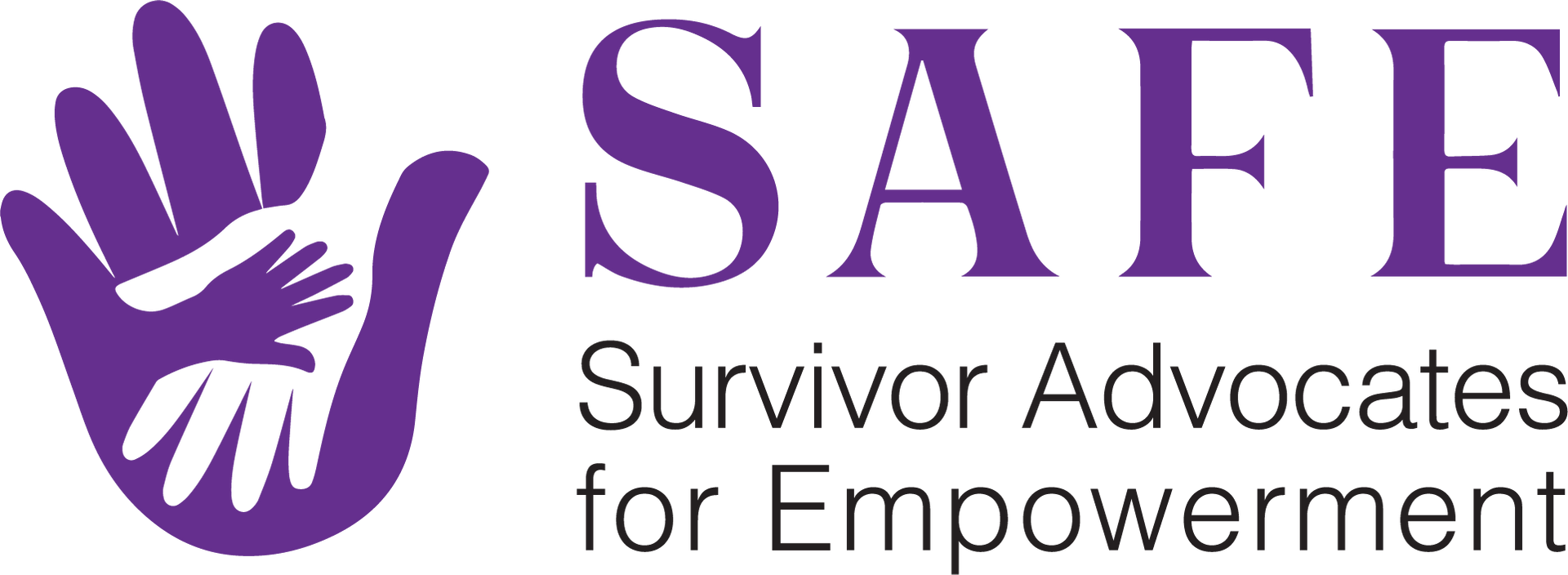Empower Other Survivors Through Peer Support
Use your journey to guide, support, and inspire others on their path to healing.
Join SAFE as a Peer Supporter
Survivors of gender-based violence often face unique challenges that can feel overwhelming and isolating. Many find it easier to connect with someone who shares a similar lived experience—someone who truly understands the emotional and practical struggles they face. While existing programs and services may provide knowledge about the academic and legal aspects of abuse, they often lack the personal perspective survivors need to feel truly supported and understood. Navigating the myriad of legal, medical, and social options available can also be confusing, adding to the stress of recovery.
As a peer supporter, a SAFE committee member offers a compassionate and empowering solution. Peer supporters provide consistent, empathetic support to survivors, whether they are still in an abusive situation or have left it. They act as guides, helping survivors understand and navigate their options, from accessing medical care to exploring legal and social services.
Unlike traditional programs, peer supporters focus on listening without judgment. Their role is not to dictate decisions but to help survivors feel heard, validated, and empowered to take the steps that are right for them. By sharing their own lived experiences, peer supporters create a safe, understanding space where survivors can begin to heal and rebuild.
If you’re interested in learning more about the vital role of a SAFE committee member or becoming a peer supporter yourself, visit www.survivor-advocates.org for more details. Contact SAFE to discover how you can use your journey to help others find their strength and path forward. Together, we can build a community of understanding and empowerment.
Every 6 days a woman in Canada is killed by an intimate partner.
- CBC
Lorraine has always valued my contribution, as a woman of colour, on the SAFE committee. She has always given me space to air my grievances, provide my prospective, and advocate for racialized people in a way that is often overlooked by mainstream advocacy movements.
Contact Us For More Information
Your journey can inspire others. By becoming a peer supporter with SAFE, you’ll provide understanding and guidance to survivors who need it most. Contact us to learn how your experience can bring hope and empowerment to others on their path.
Contact Us Form - Become a Peer Supporter
Frequently Asked Questions
What is gender-based violence?
Gender-based violence can be viewed as a deeply personal and traumatic experience rooted in power imbalances related to gender. It encompasses a range of physical, sexual, verbal, emotional, and psychological abuses that are directed at women and girls because of their gender.
What is domestic violence?
Domestic violence is when someone in a family or a close relationship hurts or controls their partner or family member. This can be hitting, yelling, forcing them to do things they don't want to, or keeping them away from friends and family. It's not just physical harm; it also includes actions and words that hurt emotionally and make someone feel scared or small. It happens in what should be a safe and loving environment, which makes it especially hard and confusing for those who experience it. Domestic violence can include physical, emotional, psychological, sexual and financial abuse.
How can I tell if I’m in an abusive relationship?
Knowing if you're in an abusive relationship can be hard, but there are key signs. It's not just about physical harm. Look for things like your partner controlling what you do, making you feel scared or bad about yourself, cutting you off from friends, forcing you into things, or threatening you. If you often feel scared or small around them, it's a big red flag. Remember, a healthy relationship should make you feel safe and respected.
What exactly is considered sexual assault?
Sexual assault is any unwanted sexual activity, including touching, grabbing, and rape. It’s an act where consent is not freely given by the victim. It’s important to remember that consent must be clear, enthusiastic, and ongoing.
How do I know if what happened to me is sexual assault?
If you experienced any form of sexual contact or behavior without your explicit consent, it is considered sexual assault. This includes any non-consensual touching, forced sexual acts, feeling like you cannot say no, being under the influence or being made to participate in sexual activities against your will.
I was sexually assaulted. What should I do first?
First, get to a safe place. Your safety and well-being are the most important. If you are hurt or need immediate help, call emergency services. Remember, it's your choice to report the assault, but it can be helpful to preserve any evidence if you decide to. This means not showering or changing clothes if possible. Reach out to someone you trust for support. Consider contacting a sexual assault hotline or a local support organization for guidance on what to do next and to talk about your options. Remember, what happened is not your fault, and help is available.
Will people believe me if I tell them about the assault?
It can be scary to share what happened, but many people will believe and support you. It’s crucial to talk to someone you trust, whether it’s a friend, family member, or a professional at a support organization.
How can I support a friend who confided in me about their sexual assault?
Listen without judgement and believe their story. Offer your support and help them explore their options, but remember to respect their choices and pace. Encourage them to seek professional support if they’re open to it.
How can I get involved with SAFE?
There are a few ways you can get involved with SAFE. Thank you for your interest.
First, if you're looking to get involved in a volunteer capacity, that's great!
SAFE currently has the following opportunities available for volunteer roles:
✔️ SAFE Fundraising Team
✔️ Events Team
✔️ SAFE Committee*
*The SAFE Committee, is the heart and soul of SAFE. The Committee is made up of female-identified and non-binary survivors who are no longer in crisis. Their core focus is to provide support and services for survivors and their family members, educating the community through advocacy efforts and speaking engagements, and providing community consultations to organizations who service survivors.
Submit your interest to volunteer via email: info@survivor-advocates.org
Secondly, you can get involved by staying informed. Follow SAFE on all our social channels.
Lastly, subscribe to SAFE News (a monthly newsletter) to:
💜 Get the scoop: Always be in the loop with the latest news and info that matters to SAFE. Think updates on laws, cool resources, and helpful tips.
💜 Get a heads up on events: Get the lowdown on cool events like workshops, speaking engagements and events. Perfect for learning new stuff and meeting people.
💜 Make a difference: Hear about neat ways to get involved. Whether it's volunteering, spreading the word, or other cool projects, you can really make an impact.
💜 Learn lots: Expect awesome articles, interviews, and real-life stories that teach you a ton about what it's like for survivors and how to help.
💜 Feel the power: Regular doses of empowerment and inspiration to keep your spirits high and your motivation strong.
It's more than just a mailing list – it's a way to stay connected, informed, and ready to make a difference. Plus, it's pretty cool to be part of a community that cares!
Locate the PURPLE button "Subscribe to SAFE News" at the bottom of our Home page.
How can I support a friend and/or family member experiencing gender-based violence?
Good for you for wanting to help. There 7 ways you can help:
1. Listen patiently without judgment.
2. Believe them.
3. Validate their feelings.
4. Be patient and keep constant communication.
5. Encourage them to build a support network of family & friends.
6. Help them make a safety plan.
7. Don’t give up on them.
Please locate the button just below this section and download/save a paper that goes into detail about these 7 ways.
Will I get a tax receipt for my donation?
Unfortunately, not at this time. The process to obtain charity status is currently underway, so we will be able to provide donation receipts for tax deduction purposes once that occurs.
Your donation will help us continue our mission of community engagement through peer support, community referrals, outreach programs and workshops, raising awareness through educational public speaking, consultation with local organizations and governments, active participation in community events, and monitoring community needs all done with the aim to support those in crisis and those who are recovering from crisis. Thank you again for your generosity and allyship.
SAFE’S most important next step is to operationalize our primary program, “Recovery & Beyond”. This program is designed by survivors for survivors, meant to help individuals in crisis or recently out of crisis to identify abusive behaviours, explore emotions, and plan towards long-term healing. Donations in the foreseeable future will be used for this purpose.
Meet the Team
Meet the dedicated team behind SAFE, a survivor-led organization empowering individuals and communities affected by gender-based violence. Learn about their lived experiences, expertise, and commitment to creating meaningful change. Visit the SAFE team page to discover how their work is transforming lives and fostering hope for a brighter future.



